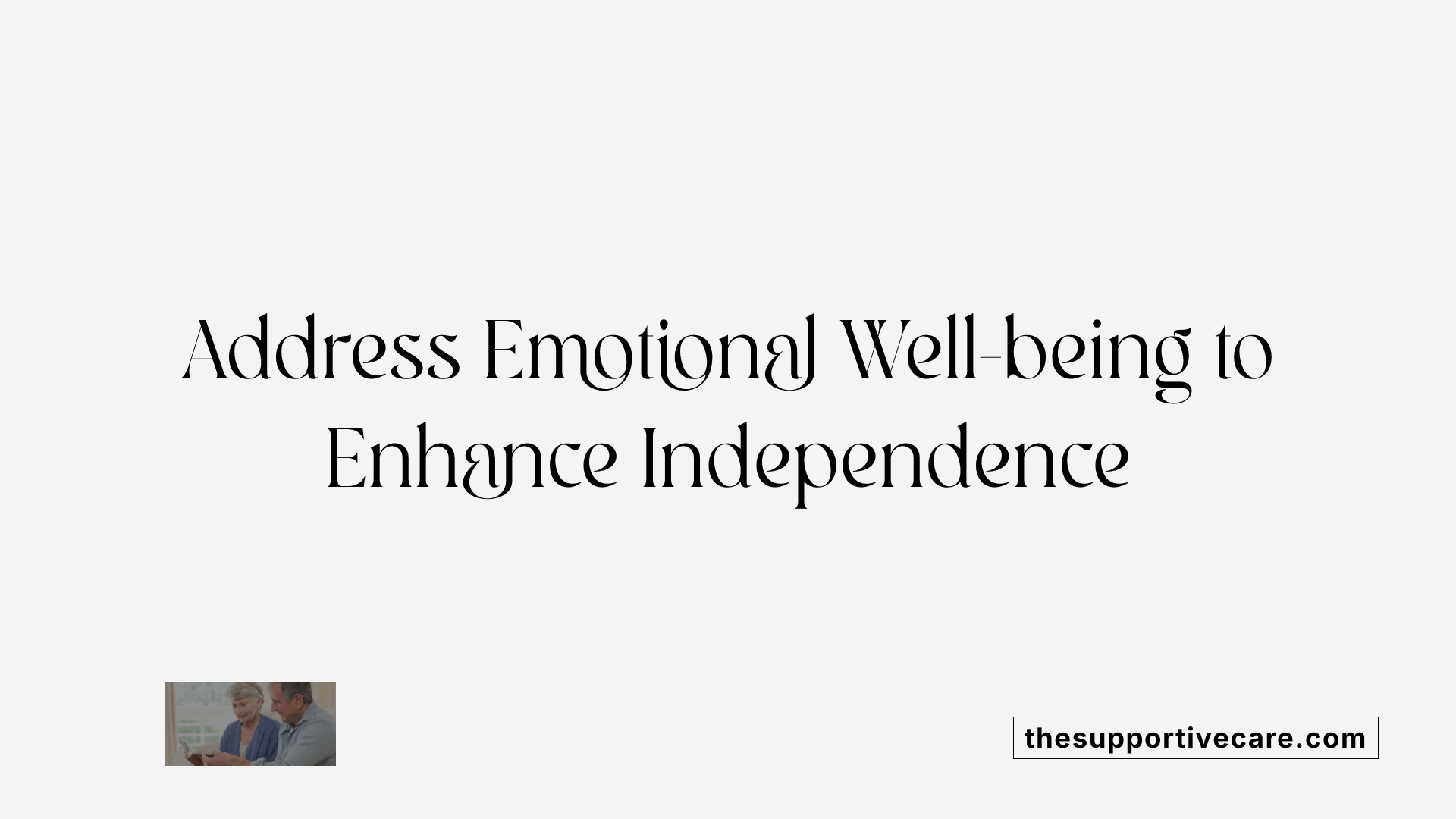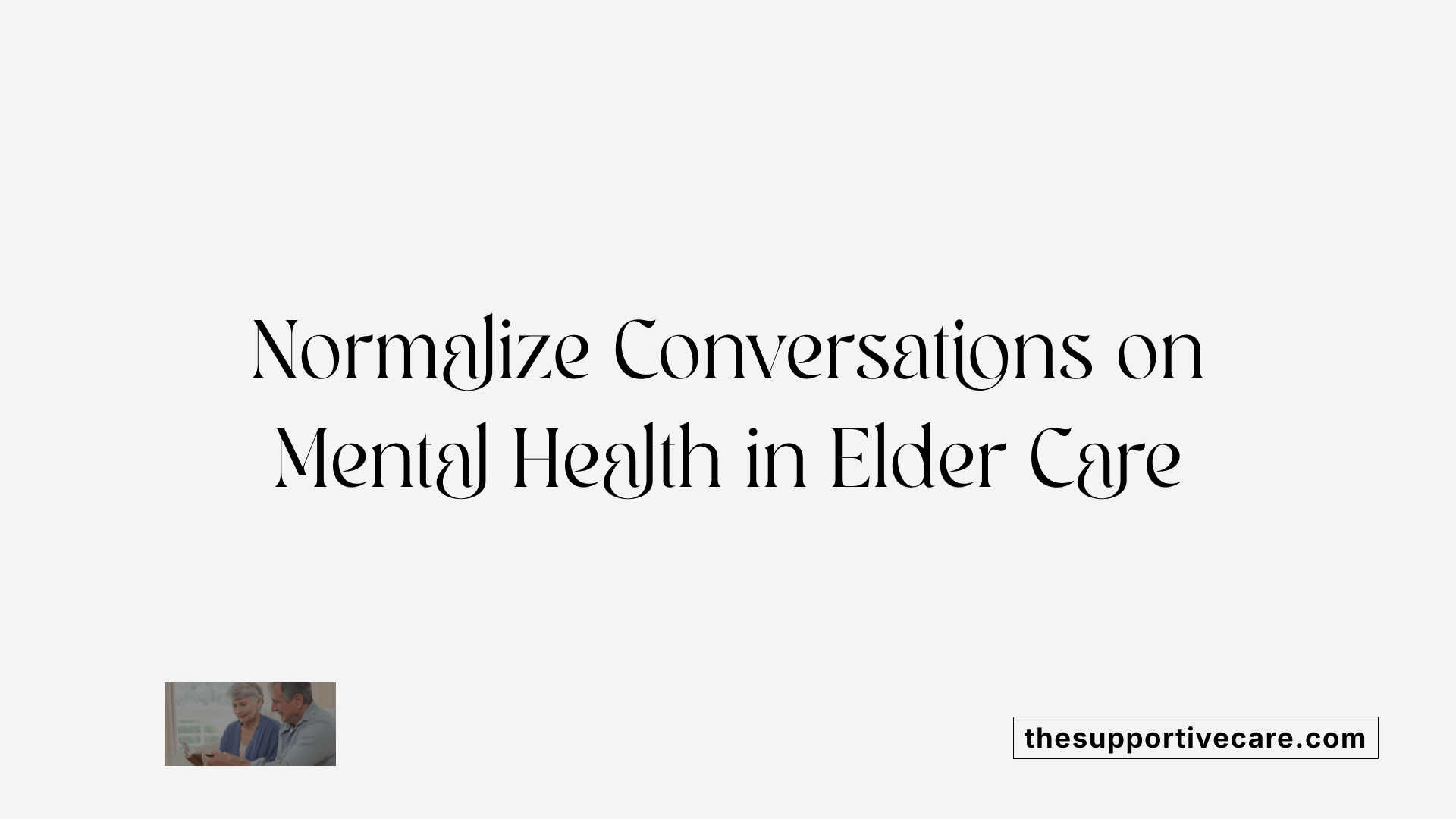Understanding the Critical Role of Mental Health Screenings in Senior Care
As the global population ages, maintaining mental health becomes increasingly vital for ensuring a high quality of life for seniors. Regular mental health screenings serve as a cornerstone of preventive healthcare, enabling early detection and management of conditions like depression, anxiety, and cognitive decline. This article explores the significance of these screenings, the methods employed, and how they contribute to healthier, more resilient aging.
Why Mental Health Is Essential for Seniors

Why is mental health important for seniors?
Mental health plays a vital role in the overall well-being of older adults. As aging brings various physical health issues, social challenges, and emotional stressors, maintaining mental health becomes essential for quality of life. Conditions such as depression, anxiety, and cognitive decline are common in seniors and can significantly impact their ability to engage socially and physically.
Older adults often face loneliness, social isolation, grief from losing loved ones, and chronic health problems like pain or impaired mobility. These factors can increase vulnerability to mental health disorders, which, if left unaddressed, may lead to a decline in independence and overall happiness.
Addressing mental health early through routine screenings and assessments helps in identifying signs of depression, anxiety, or cognitive issues before they become severe. Tools like the Geriatric Depression Scale (GDS), Mini-Mental State Examination (MMSE), or Montreal Cognitive Assessment (MoCA) assist healthcare providers in detecting early symptoms.
Proactive mental health care supports resilience, ensuring seniors can manage stress, adapt to challenges, and maintain social connections. It also facilitates timely interventions, such as counseling, medication, or support groups, which can prevent the progression of mental health conditions.
By prioritizing mental health, seniors remain active contributors to their families and communities. Promoting mental well-being helps reduce disability, enhances life satisfaction, and fosters a sense of purpose and belonging. Ultimately, caring for mental health at every stage of life empowers older adults to age with dignity, independence, and a higher quality of life.
The Benefits of Mental Health Screenings for Seniors

What are the benefits of mental health screening for seniors?
Mental health screening plays a crucial role in the overall well-being of older adults. These screenings enable early detection of common mental health issues such as depression, anxiety, and cognitive impairments like dementia. Identifying these conditions early can prevent symptoms from worsening and help maintain a better quality of life.
Routine mental health assessments also help normalize conversations about mental health, reducing stigma that often surrounds these topics. When mental health becomes a routine part of healthcare, seniors may feel more comfortable discussing their concerns and seeking support.
Moreover, screenings open opportunities for healthcare providers to craft personalized treatment plans. These tailored approaches—whether involving therapy, medication, lifestyle changes, or support groups—are more effective when based on early and accurate diagnosis.
Early detection through screening not only supports mental and emotional resilience but also allows for timely interventions that can mitigate social issues such as loneliness and social isolation.
Overall, integrating mental health screenings into senior healthcare is essential for promoting healthy aging, improving treatment outcomes, and enriching seniors' lives by supporting their mental and emotional well-being.
How Screenings Enhance Overall Well-Being and Quality of Life

How do mental health screenings contribute to overall well-being and quality of life for seniors?
Mental health screenings are vital tools in promoting the overall well-being of older adults. By enabling early detection of issues such as depression, anxiety, and cognitive decline, these assessments facilitate timely and effective interventions. Early treatment can significantly improve mood, cognitive functioning, and social engagement, helping seniors maintain their independence and emotional stability.
Beyond identifying mental health conditions, screenings also highlight social factors like loneliness and social isolation. These social determinants are linked to both mental and physical health outcomes. Recognizing them allows healthcare providers to connect seniors with community resources, support groups, and social activities that foster a sense of belonging and purpose.
Incorporating a multidisciplinary approach, involving psychologists, social workers, primary care physicians, and community organizations, ensures comprehensive care that addresses the diverse needs of aging individuals. Innovative models like collaborative care bring together these professionals to work as a team, improving treatment coordination and accessibility.
Supporting elements such as resilience, having meaningful activities, and social participation are crucial for positive aging. Encouraging seniors to engage in social networks, hobbies, and purposeful activities helps build resilience against age-related challenges and reduces the stigma associated with mental health issues.
Ultimately, regular mental health assessments contribute to better health outcomes, decreased disability, and a higher quality of life. They foster a sense of connectedness and purpose, promoting emotional well-being and enabling seniors to enjoy a healthier, more engaged, and fulfilling life.
Types and Processes of Mental Health Assessments Suitable for Seniors
What types of mental health assessments are suitable for seniors?
Assessing mental health in seniors involves a variety of specialized tools tailored to their unique needs. Cognitive screening instruments such as the Mini-Mental State Examination (MMSE) and the Montreal Cognitive Assessment (MoCA) are staples in detecting early signs of memory problems, cognitive decline, and dementia.
For evaluating mood disorders, tools like the Geriatric Depression Scale (GDS-15) and the Patient Health Questionnaire (PHQ-9) are commonly used. These questionnaires help identify symptoms of depression, which are prevalent yet often underdiagnosed in older adults.
Caregiver-based assessments, such as the Cornell Scale for Depression in Dementia, are helpful when patients have significant cognitive impairments that hinder self-reporting. To assess psychiatric symptoms like psychosis, the Brief Psychiatric Rating Scale (BPRS) provides a structured approach to diagnosis.
A comprehensive geriatric assessment goes beyond mental health, encompassing physical health, functional ability, social circumstances, and environmental factors. This multidisciplinary process offers a holistic view.
The choice of assessment tools must consider the individual's cognitive status, medical conditions, and social environment. This tailored approach ensures accurate diagnosis, better treatment planning, and improves overall outcomes for seniors.
The Role of Screenings in Diagnosing and Managing Mental Health Conditions
What is the role of mental health screenings in diagnosing and managing mental health conditions in seniors?
Mental health screenings are essential tools for uncovering issues that often go unnoticed in older adults, such as depression, anxiety, and cognitive decline related to dementia or Alzheimer’s disease. These brief, structured evaluations help healthcare providers identify symptoms early, before they develop into more severe health problems.
Screenings typically involve standardized questionnaires like the PHQ-9 for depression, GAD-7 for anxiety, and cognitive tests such as the Mini-Mental State Examination (MMSE) or MoCA. Conducted during routine checkups or specialized assessments, they enable clinicians to gather crucial information about mood, behavior, and cognitive functions.
Early detection through these evaluations allows for personalized treatment strategies that can significantly improve quality of life. Interventions may include medications, psychotherapy, social support, and lifestyle changes, tailored to each individual’s needs.
Moreover, mental health screenings help identify social risk factors such as loneliness, social isolation, or abuse, which are common in seniors but often overlooked.
Community and support coordination becomes possible once risks are identified, enabling more comprehensive care plans involving caregivers, support groups, and community resources.
Implementing routine mental health screenings is proven to reduce disability and prevent the worsening of conditions. Timely intervention can slow disease progression, decrease hospitalizations, and foster greater independence.
Ultimately, these screenings play a vital role in creating a proactive approach to senior mental health, ensuring that issues are managed effectively to promote emotional well-being and overall health.
Fostering a Culture of Mental Wellness in Aging
Implementing routine mental health screenings for seniors is a proactive step toward fostering a culture of mental wellness in aging populations. By facilitating early diagnosis, personalized treatment, and addressing social determinants, these screenings help maintain emotional stability, resilience, and independence. Promoting awareness and reducing stigma through routine assessment encourages open dialogues about mental health, ultimately leading to better health outcomes and enriched quality of life. As healthcare providers, families, and communities prioritize regular mental health checkups, they contribute to a supportive environment where older adults can thrive with dignity, purpose, and well-being.
References
- Why Mental Health Screenings Are Important - Christian Health
- Effectiveness of health checkup with depression screening on ...
- The Benefits of Regular Health Screenings - CommuniHealth Services
- The Importance of Regular Health Screenings for Seniors
- Recognizing the Importance of Mental Health for Older Adults
- Mental health care for older adults: recent advances and new ...
- Why Mental Health Screenings Matter for Seniors? - Senior Helpers
- More Than a Mood: Why Depression Screening Should Be Routine



































































































